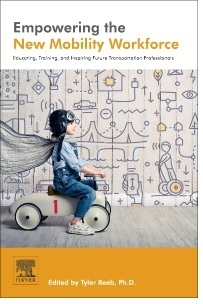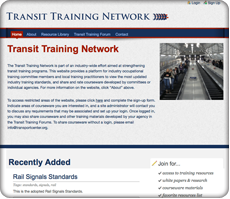News
Center Deputy Director Xinge Wang Points Toward Workforce Strategy in the New Mobility Era
Posted August 2019

The development and testing of automation technologies has been increasingly fast moving. For the public transportation industry, these new technological innovations raise many possibilities and questions. In Chapter 10 of the recently published book Empowering the New Mobility Workforce (2019), the Center’s Deputy Director Xinge Wang explored some of these questions. To determine the impact that the new developments in technology and service provision have on the workforce, she examined the standard Bureau of Labor Statistics employment projections for key transit frontline occupations and synthesized findings from three recent research reports to gain additional insights on the subject. These analyses demonstrate that automation can result in significant benefits in terms of increased productivity, improved safety, and convenience of lives. However, they can also substitute existing work that humans currently carry out. Workers with low skills and low wages tend to be affected more by technological substitution of labor, and the transferability of their existing skills is also more limited. Several recommendations were made for ongoing assessment of the impact of new technology on the future of transportation workforce, mitigation of the potential employment disruption, and preparation for the new skills demands from emerging technologies. The industry needs to significantly increase workforce training investment, establish labor-management partnerships proactively to provide assistance to displaced workers and retraining, integrate training on new technologies into pre-apprenticeship and apprenticeship programs, and collect data to inform policies and decision-making.
Ms. Wang is recognized as one of this country’s leading experts on future projections of workforce needs for transportation industry, especially public transportation. In 2015, Ms. Wang led the joint research effort of US Department of Transportation, Education and Labor to identify the future workforce needs to strengthen skills training and career pathways of the transportation industry. She has also been the key researcher and co-author on many projects funded by the Transit Cooperative Research Program (TCRP) focusing on transit workforce development.
For a copy of the book, go to: https://www.elsevier.com/books/empowering-the-new-mobility-workforce/reeb/978-0-12-816088-6
